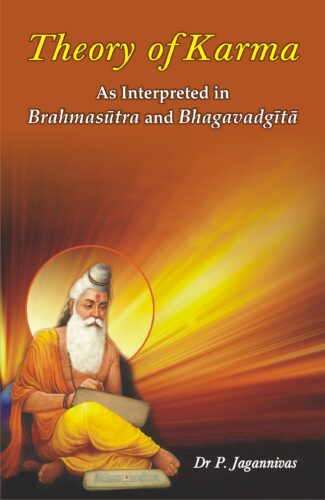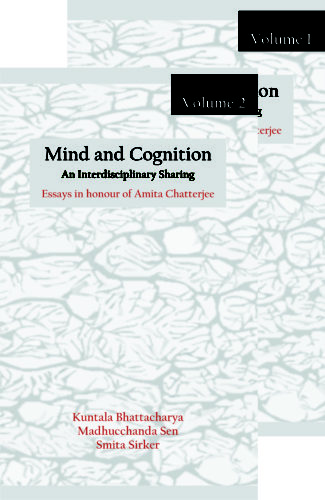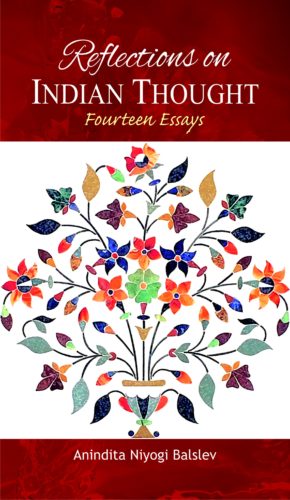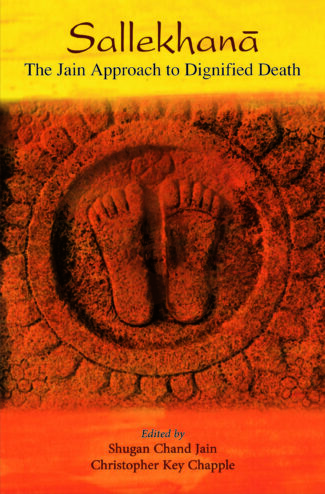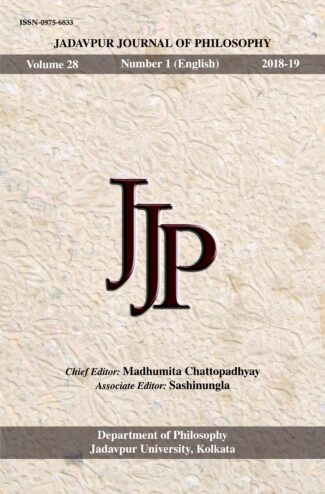

Classical Indian Phi...
Classical Indian Philosophy Reinterpreted
by: Victoria Lysenko , Michel HulinThe book reinterprets some basic concepts of paramanu (atom), samanya (universal), ahamkara (the ego-principle) and karma as understood by the classical Indian philosophical systems the Nyaya-Vaishesikas, Samkhyas and the Buddhists. The articles explore the study of Aristotle’s Mean (Mesotes) and Buddha’s Middle Path (Majjhima Patipada).
Original price was: ₹300.00.₹270.00Current price is: ₹270.00.
ISBN: 9788186921364
Year Of Publication: 2007
Edition: 1st
Pages : vii, 155
Bibliographic Details : Index
Language : English
Binding : Hardcover
Publisher: Decent Books
Size: 23
Weight: 350
Classical Indian Philosophy Reinterpreted consists of articles written by Victoria Lysenko and Michel Hulin two distinguished scholars of international repute on some basic concepts of classical Indian philosophy such as paramanu (atoms), samanya (universal), ahamkara (ego principle), and karma. These essays address important debates and issues that have arisen centering around Indian philosophical texts. In an essay an attempt has been made to resolve the apparent contradiction between the psychological and cosmic aspects of tattva in the scheme of the Samkhya dualism. One of the major contributions of this volume consists in situating Indian concepts from a comparative perspective as well. A comparative account of Aristotle’s Means (Mesotes) and Buddha’s Middle path (Majjihima Patipada) is illuminating. The notion of Christian reincarnation has also been compared and contrasted with the Indian concept of karma. The karmic principle has been interpreted as a mechanism for retribution and the link between karmic causality and the role of Ayurveda, the classical Indian science of medicine, has been explored and analysed. These essays share a common perspective in looking at philosophy from within the cultural traditions in which it grows. This book will be useful to researchers, academicians and other interested persons. Even a reader who is not familiar with classical Indian philosophical texts can form some idea about the rigour and thoroughness of Indian philosophical approach.
Key to Transliteration
Introduction
1. Atomistic Formulations in Indian Thought
— Victoria Lysenko
2. Origin of the Idea of Universals:Vaisheshika or Vyakarana
— Victoria Lysenko
3. The Ego-principle (Ahamkara) as a Key Concept in the Samkhya-Karika
— Michel Hulin
4. The Difficult Task of Hitting the Mean — Aristotles Mean (Mesotes) and Buddhas Middle Path (Majjhima Patipada)
— Victoria Lysenko
5. Reinterpretations of Karman in Contemporary Western Societies
— Michel Hulin
6. Morals and Soteriology
— Michel Hulin
7. Karman in Medical Literature
— Michel Hulin
8.Classical Indian Philosophy in the Perspective of Cultural Studies: Sketching a New Approach
— Victoria Lysenko
Index






